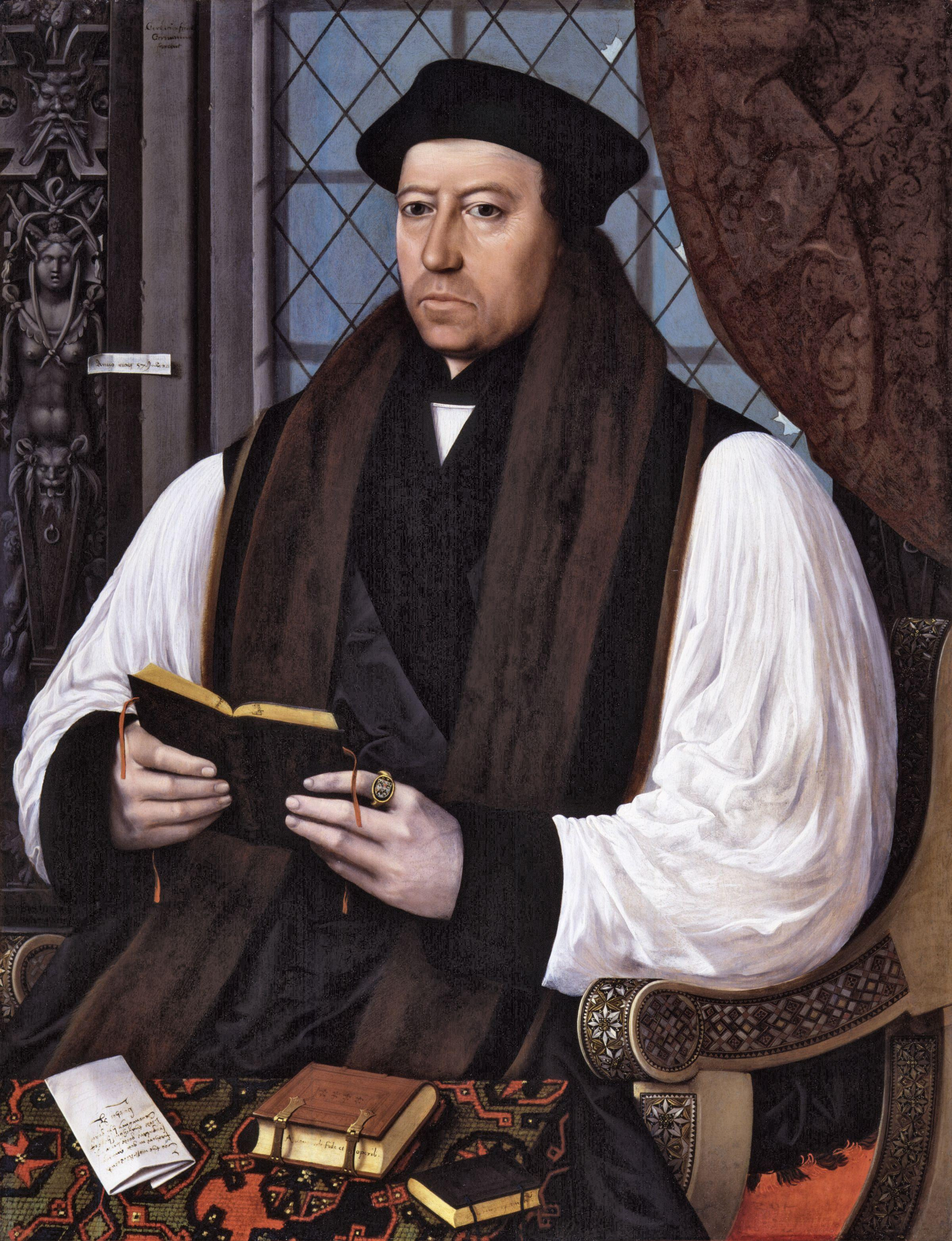"I, Thomas Cranmer, late archbishop of Canterbury, do renounce, abhor, and detest all manner of heresies and errors of Luther and Zuinglius, and all other teachings which are contrary to sound and true doctrine. And I believe most constantly in my heart, and with my mouth I confess one holy and catholic church visible, without which there is no salvation; and therefore I acknowledge the bishop of Rome to be supreme head on earth, whom I acknowledge to be the highest bishop and pope, and Christ's vicar, unto whom all christian people ought to be subject.”
This statement, signed by the very hand of Thomas Cranmer, was the crowning triumph of all his Romish enemies, not the least of whom was Bloody Mary herself. Coerced into signing a recantation of his protestant convictions, Cranmer was publicly disgraced and the cause of the Reformation in England wavered perilously.
Thomas Cranmer rose to prominence during the reign of King Henry VIII. Cranmer’s brilliant mind was employed to justify Henry’s divorces, and to facilitate the break with Rome. Cranmer served his sovereign loyally, and was elevated to be Archbishop of Canterbury.
During his two decades as Archbishop, he promoted the cause of the Reformation. He put an English translation of the Bible in parish churches, introduced and then revised the Book of Common Prayer, proposed a revision of ecclesiastical law, and authored forty two articles, which became the Thirty Nine Articles of the Church of England.
Writing to John Calvin, Cranmer said, “Meanwhile we will reform the English Church to the utmost of our ability and give our labour that both its doctrines and laws will be improved after the model of Holy Scripture.”
During the reign of King Edward VI, Cranmer made even greater progress in promoting protestant Christianity. It is hard to overestimate his influence on the Church of England for centuries to come.
When Edward died, his successor was the Roman Catholic “Bloody Mary.” Cranmer was considered an “arch-heretic” and the queen’s agents worked studiously to destroy him and his influence. After convicting Cranmer of treason, he was degraded of all his ecclesiastical rank and authority. Utilizing psychological and spiritual warfare against him, they secured his public recantation. This was publicized as part of his execution.
When Cranmer was brought to the stake to be burned to death, he determined to do one last thing: to recant his recantation. Speaking to the assembled crowd, Cranmer said this: "And now I come to the great thing which so much troubleth my conscience, more than any thing that ever I did or said in my whole life, and that is the setting abroad of a writing contrary to the truth, which now here I renounce and refuse, as things written with my hand contrary to the truth which I thought in my heart, and written for fear of death, and to save my life, if it might be; and that is, all such bills or papers which I have written or signed with my hand since my degradation, wherein I have written many things untrue. And forasmuch as my hand hath offended, writing contrary to my heart, therefore my hand shall first be punished; for when I come to the fire, it shall first be burned. "And as for the Pope, I refuse him as Christ's enemy, and antichrist, with all his false doctrine….”
As the flames licked up his body, Cranmer is said to have held his offending hand into the flame, making good his declaration to punish it first for signing that wretched document. So on this day in 1556 died a true servant of Jesus Christ, who by his courageous death emboldened the Reformers in England.

© 2026 The Orthodox Presbyterian Church